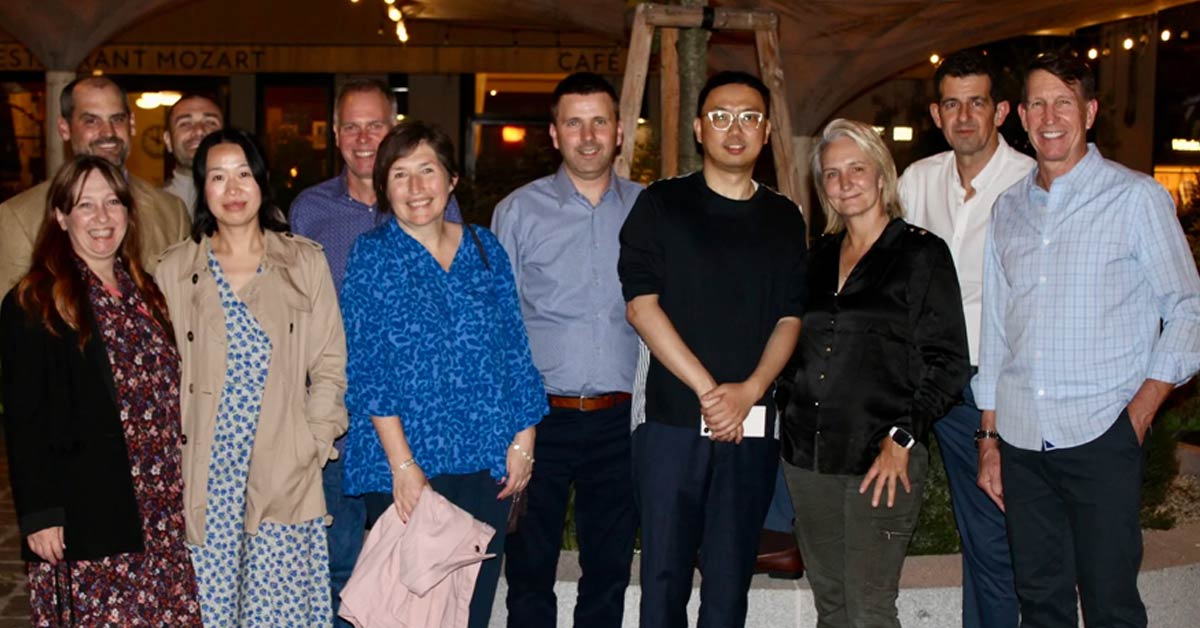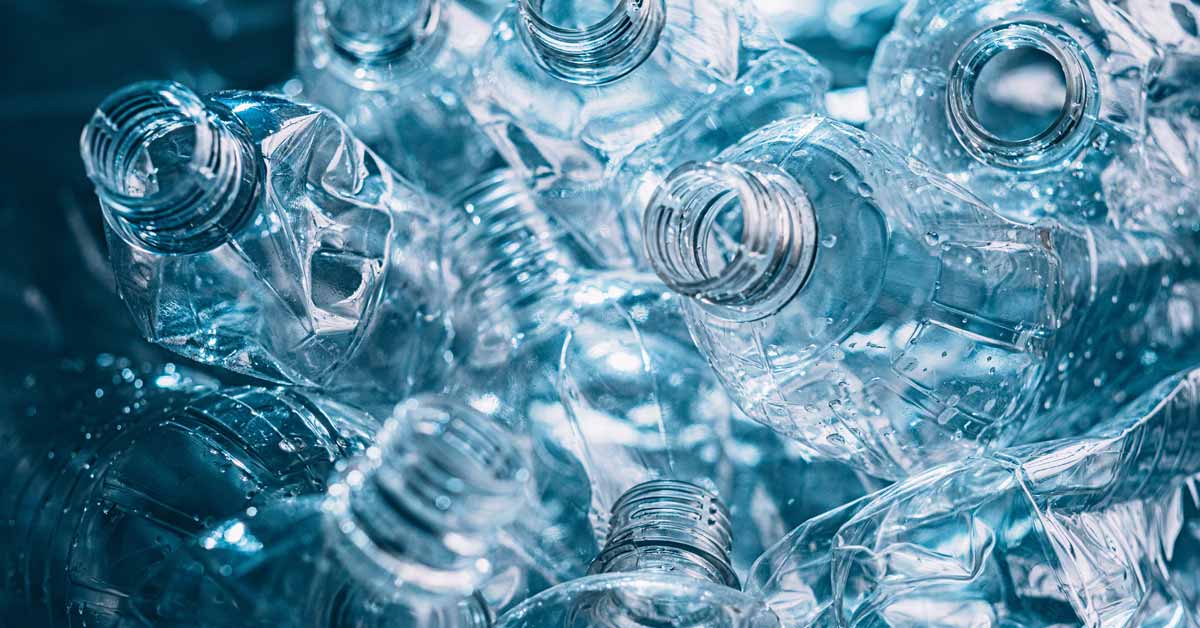6 min read
Key Takeaways From a Premier Petrochemicals Event: EPCA Vienna 2023
Tecnon OrbiChem
:
Oct 10, 2023 12:00:00 AM

Tecnon OrbiChem experts connected (and reconnected) with cohorts of petrochemicals-focused contacts cultivated over 50 years at the end of last month.
The European Petrochemical Association's Annual Meeting drew thousands of market participants to Vienna.
Perhaps the sunshine helped lift spirits slightly higher than they were during the first post-Covid EPCA... The somewhat somber mood of the 56th Annual Meeting is distilled in our coverage, Angst in Berlin: Insights from EPCA 2022.
But this year was characterized by the sentiment that it cannot get any worse and that any change now will surely be for the better...
Surely, the Only Option is Up...?
 Tecnon OrbiChem's business manager for epoxy resins, bisphenol A, epichlorohydrin, and benzene Jennifer Hawkins noted a summer still in full flow at this year’s EPCA Annual Meeting.
Tecnon OrbiChem's business manager for epoxy resins, bisphenol A, epichlorohydrin, and benzene Jennifer Hawkins noted a summer still in full flow at this year’s EPCA Annual Meeting.
Indeed, Vienna was under a cloudless September sky... The sun – unseasonably hot for the time of year – shone down seemingly benevolently on market participants...
Optimism was in the air. Gone was the doom and gloom of last year’s meeting in Berlin. In its place was a general feeling that petrochemical markets could not get any worse.
"An 18-month or more decline in pricing was finally being halted by the strong rally in crude oil prices. Market participants were looking forward to stability over the next six months or longer," says Hawkins. "Things could only get better..."
"And even though the European epoxy resins market was still facing a tumultuous Q4, there would be an improvement the following quarter. After a year of intense competition among domestic and Asian epoxy resin suppliers, the last hurdle was in sight. Producers just needed to get buyers to commit to contracts for next year, and then the epoxy resins industry would become stable again."
Post-EPCA, margins got some breathing space when crude oil values declined despite Opec+ extending its production cuts. Then Hamas attacked Israel...
- Tecnon OrbiChem business manager Jennifer Hawkins
"The following week, margins were also given some breathing space again when crude oil values started to decline despite Opec+ extending its production cuts to the end of the year. Prices were pulled down by a slowdown in trading in China ahead of its Golden Week holiday, US gasoline demand seasonally softening and ongoing poor demand in the petrochemical sector.
"But then on 7 October, an attack by Hamas on Israel caused oil markets to go into reverse and prices shot upwards again. The Indian Summer in Vienna now seems like a long time ago. Markets have once more been plunged back into a period of uncertainty and volatility.
'Winter is coming," adds Hawkins.
Stoicism got the industry from last year's EPCA to this year's... And with 2024 a breath away, there are future hopes to pin. And besides, there was an increased focus on Environmental, Social, and Governance (ESG), sustainability, and green chemistry at the 57th meeting, as in the wider world.
 Tecnon OrbiChem's newest Europe-based consultant Jaroslaw Cienkosz covers fibres & intermediates, ammonia, acrylic acid & acrylates markets. And pivotal to Cienkosz's portfolio is the building block chemical methyl methacrylate (MMA).
Tecnon OrbiChem's newest Europe-based consultant Jaroslaw Cienkosz covers fibres & intermediates, ammonia, acrylic acid & acrylates markets. And pivotal to Cienkosz's portfolio is the building block chemical methyl methacrylate (MMA).
A key feedstock for acrylic-based polymers as well as paints, coatings, and resins, MMA is almost exclusively petroleum-based. But – at this year's EPCA – German chemicals company Roehm promoted its Meracryl proTerra MMA alternative – made using circular, recycled, or biogenic sources.
"We are increasingly seeing this kind of innovation in the MMA subsector," says Cienkosz. "Mitsubishi Chemicals Group has just unveiled plans for a UK-based circular MMA sampling centre. And Trinseo’s investments in techniques for recycling PMMA using recovered MMA were highlighted in its Q2 conference call."
Added Acrylate Advantage
But, Cienkosz explains, "The proximity of Roehm's new Bay City LiMA MMA plant in Texas to HIF Global's carbon capture facility in the state's Matagorda County brings additional potential."
Roehm's proprietary MMA manufacturing process LiMA process has potential for adding captured carbon – as does Mitsubishi's Alpha route – but the volume of waste carbon it can (theoretically) emit for capture cannot justify investing in carbon capture and usage (CCU) infrastructure.
"In this instance, feasibly converting captured carbon dioxide into methacrylic monomer feedstock pivots on the availability of externally sourced raw material," says Cienkosz. "CCU technology for transforming CO2 to green methanol is among the most mature – and therefore promising – of the CCU technologies.
"Roehm, of course, knows its Texan neighbourhood... And the strategic advantage in terms of energy, feedstock supply costs and green raw material sourcing. Vitally, given the LiMA MMA process' high (23:1) molar ratio of methanol to methacrolein, an assured green methanol supply will underpin an excellent final molecule, and carbon footprint profile."
Green Methanol in Shipping, Too

Green methanol is a term that was not only on the lips of MMA producers at EPCA. Lead business manager William Bann noted "accelerated interest" in green methanol these past 12-18 months.
"This is particularly evident in the shipping industry, which is touting green methanol as a low-carbon substitute for traditional bunker fuels," Bann says.
Green methanol can reduce carbon dioxide emissions from container ships by 60% to 95% compared with conventional fossil fuels, according to published reports. There are now more than 200 methanol dual-fuel vessels of all sizes on order from major shipping companies as the industry attempts to meet decarbonization goals over the next five to six years.
Green methanol, which is produced from biomass or captured carbon and hydrogen from renewable power, was recently – and for the first time – used as a bunker fuel in some of the world’s largest ports.
Bann notes, however, that the main problem according to market participants attending EPCA "comes down to basics – supply versus demand". Currently, Bann concludes "there is nowhere near enough supply to meet the level of demand needed by 2025, let alone 2050."
PET and Polyester
Business manager Javier Rivera says the polyester and PET industries' low margins and low volumes have "never before been experienced for such a long period".
"Changes in consumer habits post-pandemic and high imports of PET have impacted European PTA/PIA/MEG industry operating rates. Utilization has been only slightly above 50% in 2023."
The only positive note, says Rivera, is in the consensus that the bottom has been reached.
Rivera’s Key EPCA (& Q4 Kick-off) Takeaways
- The European industry is better positioned to cover future PET demand.
- To guarantee low paraxylene disparities in 2024 will remain a critical point for all products in the chain.
- Indorama communicated to customers during EPCA to permanently shut down its Artlant PTA unit in Portugal. Sasa´s new PTA unit in Turkey – due for start-up in early 2024 – will be delayed.
- Provisional measures – if any – arising from EU proceedings regarding PET imports originating in China – covered in this blog post, Chinese PET imports in EU anti-dumping investigation should be communicated to interested parties before 30 October.
- The need to incorporate 25% of recycled material in beverages in 2025 will limit consumption of virgin PET
Let's Get Rational About It
Rationalization "is fully expected to continue," says Rivera. "Individual companies are examining competitiveness, upstream/downstream integration, and how to approach sustainability strategies as we speak. These will remain critical factors in evaluating positions for 2024 and beyond.
"Currently, the US scenario is not different with joint venture partners (Indorama, Alpek, and FENC) announcing (as EPCA proceeded) intent to temporarily pause construction at the partly completed integrated PTA-PET plant in Corpus Christi, Texas," adds Rivera.
Plasticizers
 Our plasticizers and oxo-alcohols-focused senior consultant Rachel Uctas noted that European plasticizer producers are positioning themselves to meet sustainable plasticizer demand.
Our plasticizers and oxo-alcohols-focused senior consultant Rachel Uctas noted that European plasticizer producers are positioning themselves to meet sustainable plasticizer demand.
"Companies are working to address future needs and challenges related to the EU regulations. However, at the present time, more sustainable options come with a hefty price tag which is finding limited interest from buyers. Currently, these plasticizers are still only a small part of the market.
"Compounders noted that they would like to see greater support for companies trying to find their way around the complexities of the Corporate Sustainability Reporting Directive which obliges companies to report on emissions and to explain how they will reduce them. The Directive will be in place from January 2024."
"Mass balance approach is an important part of moving towards improved sustainability, and Green plasticizers which can be used by PVC compounders in certain applications include those made from epoxidized soybean oil for example."
"Oxo-alcohol producers noted that some customers do ask for bio-sourced feedstock and bio-propylene is used to an extent in the production of both bio-butanol and bio 2-EH. This is only a small part of the European market though," Uctas adds.
Bio-BDO Versus BDO...
Consultant and biomaterials expert Kaiyin Hu learned from one key petrochemical company that their strategy is to reduce the carbon footprint of production rather than develop biobased materials.
 "Within the petrochemicals sector, this company is not alone in remaining skeptical about pinning too much hope on biobased chemicals. The grappling over food versus fuel raw materials and the ever-evolving policy around bio-feedstocks make many reluctant to get too involved."
"Within the petrochemicals sector, this company is not alone in remaining skeptical about pinning too much hope on biobased chemicals. The grappling over food versus fuel raw materials and the ever-evolving policy around bio-feedstocks make many reluctant to get too involved."
"And of course, a lot of other sectors are still not prepared to pay such premium rates for these products, especially now the economy is bad. The signs are that the closer a sector is to the end consumer, the more likely it is to accept premiums."
BASF's recently announced biobased version of the traditionally petrochemical-derived commodity chemical 1,4-butanediol (BDO) is suitable for a wide range of applications.
"You will see it promoted in sports and gym wear for example. These products will be targeted at consumers with a conscience, and the finances to relieve it."
"Right now, there is no sign of bio-BDO interfering with the petro-BDO market," Hu concludes.




![[Video] Molecules to Markets Episode 1: Chemical Markets Begin 2026 in a Supply-Driven, Margin-Sensitive Environment](https://www.resourcewise.com/hubfs/images-and-graphics/blog/chemicals/2026/weekly-video-series-molecules-to-markets/CHEM-Weekly-Video-Series-Molecules-to-Markets-Episode-1.png)
